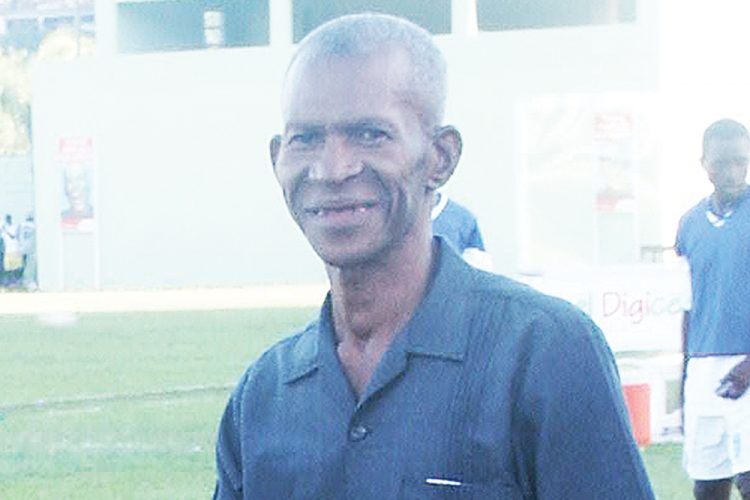Louis Boucher – A Carnival titan

It is with great sadness that I heard the news over the last weekend of the passing of carnival icon Louis Boucher, in far from dignified circumstances. My condolences go out to his family and the people of his beloved community of Paul’s Avenue. We the citizens of St Vincent and the Grenadines have lost another of our outstanding nation-builders.
Too often our concept of “great” Vincentians revolves around either politicians or those prominent persons in the traditional professions or with success in business. But there are a lot of others who in their own quiet way have made indelible marks on our historical development, even if not getting the recognition and respect befitting their contributions.
Louis was one of these. He is best remembered for his contribution towards Carnival, but this humble son of the soil also left his footprints, literally, on the soccer field, being for years one of the outstanding wingers that our country produced. He also did not shy away from public service and for years was a prominent figure in the Auxiliary Police Service. This quiet, humble, but deeply perceptive Vincentian was also a tailor for years, employed at the Cyrus Emporium in Kingstown.
However, it was in Carnival that he excelled, creatively making individual portraits, often historical in nature, leaving a legacy that has been implanted in one of today’s outstanding masmen, his relative Gordon ‘Tarya” Boucher. Those of my generation who followed carnival can never forget the keen rivalry between Louis and another legendary masman, the late Vibert Deshong.
Those days Carnival was not all compressed into one package as we do today. There were different categories – Historical, Original, Fancy mas, Military (sailor mas and war mas), Cowboys – a staple of the Dorsetshire Hill community, Indians and Africans. Not only were these categories there for bands but there was also competition at the individual level.
One such category was individual stills and here Lou and Vibert battled it out each year for the Individual of the Year, making unforgettable portrayals such as the Iron Man and Moses and the Ten Commandments. Carnival fans and spectators looked forward eagerly each year to see what the ‘Big Two” would serve up and warmly embraced the rivalry.
Though it was friendly, one could also detect social rivalry within it. There was Vibert, a darling of the middle class, all flash and style, with his sports car, long hair and all like a local version of film celebrities. On the other hand there was Lou, the humble quiet Paul’s Lot man, yet never yielding in his quest for Carnival glory. To their credit though, these undercurrents never affected their friendly rivalry.
These two, though sharing centre stage, were not the only outstanding individual masmen of the time. The old time carnival brought out the creative skills of the lower classes but also provided historical, educational and even environmental education. Historical bands would portray the great civilisations of the past such as India, China, Latin America (Aztecs) and Africa (Egypt and the forgotten West African civilisations sullied by the slave trade).
Louis Boucher therefore stands tall on the lofty pedestal occupied by the pioneers of our Carnival, men and women alike, because there were female bandleaders too like Louise Millington of Maypole fame, Sylvia Wilson and Denise Marshall. Today few of his generation are still around and that gives us all the more reason to honour and treasure greats like “Paddy” Corea who continues to share his experiences with us all.
While it is true that Carnival has been developed on this foundation, we have lost much of the authenticity and variety which made Vincy carnival so special. Masqueraders like Lou and Vibert, the irrepressible ‘Karka’ Jacobs of Sion Hill, Dougie Pitt of Indian mas fame, himself a Paul’s Lot man, and a host of others provided that individual touch, that originality which characterized our Carnival.
These treasures are irreplaceable and we must find an appropriate time and space to pay tribute to these nation-building pioneers.
Renwick Rose is a community activist and social commentator.









